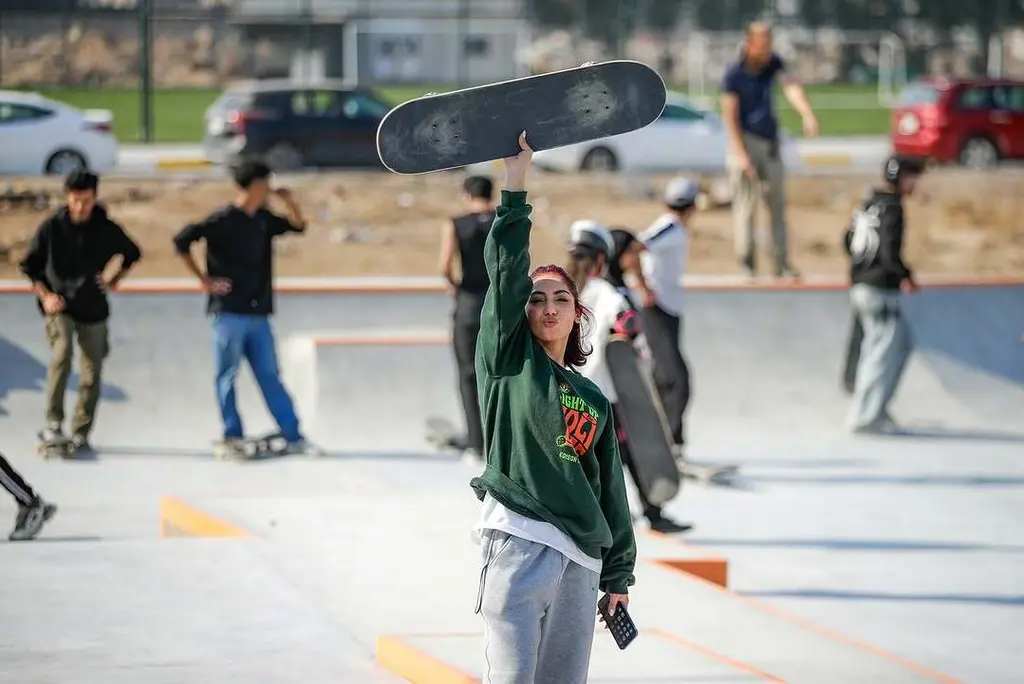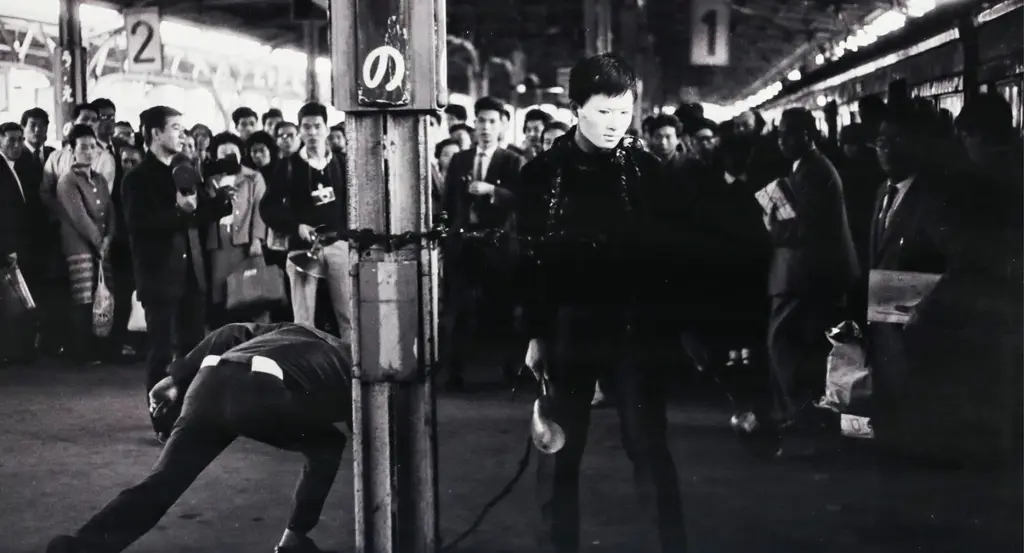The Iraqi artist rebuilding Baghdad University’s destroyed art library
- Text by Joshua Gabert-Doyon
- Photography by Wafaa Bilal - The Ashes Series: Al-Mutanabbi Street
In his upcoming exhibition at the Art Gallery of Windsor, Iraqi-born artist Wafaa Bilal draws connections between the destruction of the art library at the University of Baghdad in 2003 and the Bayt al-Hikma, or House of Wisdom – the world’s largest library until it was sacked during the 13th century siege of Baghdad.
Bilal’s project, titled 168.01, aims to investigate the recurring violence against cultural institutions through photography and installation work. But even before it’s opening at the end of this month, 168.01 has already gone way beyond what Bilal expected.
Bilal’s main installation piece for the show is a shelf of blank books, “a symbolic monument to the texts that were lost in 2003” Bilal says. The artist hopes the blank books will slowly replaced with actual art books through the public’s engagement: donations from a Kickstarter project that is accompanying the exhibition will go towards restoring the College of Fine Arts library at the University of Baghdad. “It seems like every wave of violence—past and present—involves the destruction of knowledge, and 168:01 is a symbolic act of rebuilding.” Bilal told Artslant.
Bilal, who grew up in Iraq and now works in New York, set the Kickstarter goal at $9000 (roughly £6300). With two weeks still to go before the deadline, the Kickstarter has already raised triple the goal and librarians have begun donating time to help index the donated books.
The Iraqi-American artist is best known for his incisive interactive video installation piece Domestic Tension, in which he lived in a Chicago art gallery for a month and gave online users 24-hour access to his life: shooting at him with a remote-controlled paintball gun installed in the room.
The invasion of Iraq was carried out in 2003 by forces from the U.S., Australia, Poland, and the United Kingdom. During the invasion, the College of Fine Arts library was looted and burned, resulting in the destruction of 70,000 books. For Bilal the destruction had echoes of the razing of the House of Wisdom (which is considered to be one of the centres of the Islamic Golden Age) by the Monguls in the 13th century. “It’s a story I grew up with,” Bilal says. “According to legend, the Mongol army threw the library into the Tigris River to create a bridge of books for them to cross. The pages bled ink into the river for seven days, after which the books were drained of knowledge.”
Seven days can be calculated as 168 hours – thus the title, 168.01 – the second after the destruction. Another key work in the exhibition is Bilal’s ‘Ashes Series‘. It recreates scenes of destruction as miniature models, which are then photographed and blown-up. “The ‘Ashes Series’ represents my attempt to make sense of destruction and to preserve the moment of serenity after the dust has settled: to give the ephemeral moment extended life in a mix of beauty and violence” Bilal says.
168.01 holds up the optimism of rebirth against the bleakness of repetition. The destruction of a library represents a break in history: knowledge that isn’t passed on from one generation to the other. Bilal’s hybrid installation piece provides an opportunity to rethink the rebuilding process as something collective.
Bilal: 168.01 is at the Art Gallery of Windsor January 30 to April 10.
You might like

After Assad’s fall, Syria’s musicians rebuild from the rubble
Spaces Between the Beats — Following decades of dictatorship and 14 years of civil war, the country’s classical and creative scenes have an opportunity to build from scratch. Andrei Popviciu speaks to the people hoping for a flourishing new era of art and sound.
Written by: Andrei Popoviciu

Dalia Al-Dujaili: “When you’re placeless, nature can fill the void”
Babylon, Albion — As her new book publishes, the British-Iraqi author speaks about connecting with the land as a second-generation migrant, plants as symbols of resistance, and being proud of her parents.
Written by: Zahra Onsori

In Baghdad, skater girls are reshaping Iraqi womanhood
Baghdad is rad — As the city’s first skatepark opens, the new space is providing a blank canvas for its board culture. Dalia Dawood speaks to the people looking to make its ramps and rails a safe haven for women and girls.
Written by: Dalia Dawood

The intricate, intimate interiors of Middle Eastern homes
Living Rooms — Drawn from photographs made over the span of three decades, Middle East Archive has compiled a photobook that explores the insides of homes across the region, spotlighting its family intimacy and hospitality.
Written by: Miss Rosen

A new documentary explores Japan’s radical post-war photography and arts scene
Avant-Garde Pioneers — Focusing on the likes of Daidō Moriyama, Nobuyoshi Araki, Eikoh Hosoe and many more, the film highlights the swell of creativity in the ’60s, at a time of huge economic change coupled with cultural tensions.
Written by: Isaac Muk

BODUR: “I’ve always spoken out rather than assimilating”
What Made Me — In this series, we ask artists and rebels about the forces and experiences that shaped who they are. Today, it’s SWANA-championing pop experimentalist BODUR.
Written by: BODUR


